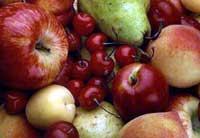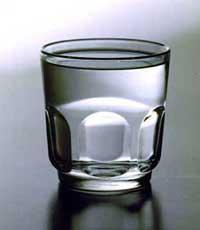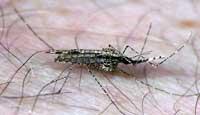On vacation, driving away health problems

Before the holidays of last August, in these pages of 7k published an article on the measures to be taken by those who were going to go abroad. The basis of the paper was what vaccines should be taken to go to which country and what to do to prevent disease. This time the theme is similar, but it refers to the need not to get sick in summer and on vacation more than before going on vacation.
Increases the number of diseases due to poor food condition or poor food use with hot weather. In recent times, in addition, infections of food origin have significantly influenced. Travel, international trade, microbial adaptability to different scenarios, changes in food production processes and population growth have much to do with increasing these infections. Passengers, refugees, immigrants… are at risk for food infections.

As already indicated, in addition to population mobility, the ability of pathogens to survive and create new varieties are the main causes of the increase in the number of infections. In addition, we must take into account the lack of control over food in different places. The population itself, which is becoming older and worse fed, has much to say in all this.
Given the seriousness of the increase in diseases caused by poor food, the World Health Organization has published a list of ten tips for safe eating:
- Nature is not always www.euskaltel.com You
have to take foods like fruits and vegetables as is, but others like milk not. Pasteurization or ionized radiation are two processes that ensure proper treatment and conservation of food. So if possible select this type of products. - Raw temperatures,
poultry, eggs, unpasteurized milk, etc. may be present with organisms that can cause disease. If they are cooked hot the pathogens will die, but it must be kept in mind that the temperature should be at least 70ºC. In addition, before preparing frozen meat or fish, they must be thawed. - Taking care of the thermometer If you prepare food that is not eaten at the time or store leftovers, you should ensure that they are
stored hot (above 60ºC) or cold (below 10ºC). This rule is very important if you want to keep food for more than four hours. However, children should be provided as soon as possible to reduce the risk of infection. It is good to have the freezer full, but filling too much is not usually good, because not all frozen foods are below -10ºC and microbes can multiply in some areas of the freezer. - The sooner, when food
is at room temperature, the microbes multiply. Higher waiting, higher risk. It is best to eat as fast as possible. - Heat as such disinfectant is only a reduction in microbial proliferation despite strict compliance with all
existing standards for food conservation. In these cases, the most effective protection against microbes is the reheating of food above 70ºC. - Raw and differentiated The mixture
of foods made from raw foods facilitates microbial proliferation. For example, if a knife has been used to clean the chicken and once prepared the same lava has been used to divide the chicken, increases the risk of infection. In such processes microbes move at ease. - Always with clean hands Before you start eating
you always have to wash your hands. Anyone who has been preparing fish or meat should always wash their hands before cooking another meal. - Beginning of purification.Food
is very sensitive to microbes. Therefore, the place where the food is put must be clean, towels to clean the containers must be clean…. - Food well sponsored Food
should be stored in airtight containers. In fact, microbes will hardly multiply. - There is
nothing like water for drinking or cooking. But water should be good, if not better not to drink water. If in doubt, it is best to remove the water.
I go to the tropics…
Apart from the food themes, in the following lines you will look at the Tropics. In fact, the number of people who come to the Tropics and become ill continues to grow. The increase in such cases has led to the opening of information services to those who have to go to the Tropics in some places. One of them is located in the ambulatory Anoia de Igualada, in Barcelona. There all travelers, to avoid health problems during the trip, give them ten golden rules:
- Absence of raw food, including vegetables, in countries where there are no major health guaranteesnor unprocessed foods, drinks not present in closed bottles, ice drinks, ice cream… or drinking water from taps and taps. When there is no other remedy, it is obligatory to drink water, to pour 3-4 ttantta-iodine per liter.

- In areas where the mosquito is abundant, it is best to wear long pants and long-sleeved shirts, especially at dusk. In addition, products must be used to ward off mosquitoes and the mosquito net to sleep.
- Due to solar burns and heat, it is recommended to use garments that expel sweat and sun hats and creams.
- Before traveling to a given country, talk preferably with doctors to know what measures and vaccines should be taken in each case.
- If you have to walk more than 2,000 meters high, advise to make the climb progressively. To avoid insolations in these cases, they say that it is good to drink a lot of liquid and that it is convenient to carry painkillers to avoid dizziness.
- People with chronic diseases, asthma, diabetes, migraines… should take the usual medicine.
- To avoid the aggression of parasites it is preferable to avoid bathing in rivers and streams, avoid mud and move away from rivers and lakes.
- When there are diarrhea, drink plenty of water. With diarrhea the greatest risk to the body is dehydration.
- Due to malaria or malaria, a memory that many times bring those of the Tropics, during the trip you have to continue taking medicines against this disease and try to avoid mosquito bites.
- Carry emergency kit. With what? The passenger kit must be:
- Pain relievers.
- Anti-inflammatory drugs.
- Sodium, potassium and glucose concentrates to prevent dehydration from diarrhea.
- Tiritas.
- Drugs to combat nausea.
- Anti-puncture medicines and allergies, antihistamines.
- Iodine dissolved in water when bottled water is not found.
- Corticosteroid creams for superficial problems.
- Antibiotics against respiratory and urinary tract infections.
- Products to scare off mosquitoes, rich in pyrethrin.
If you follow all these tips, on the return you will only have holiday pain, not anything.
Published in 7
Buletina
Bidali zure helbide elektronikoa eta jaso asteroko buletina zure sarrera-ontzian











